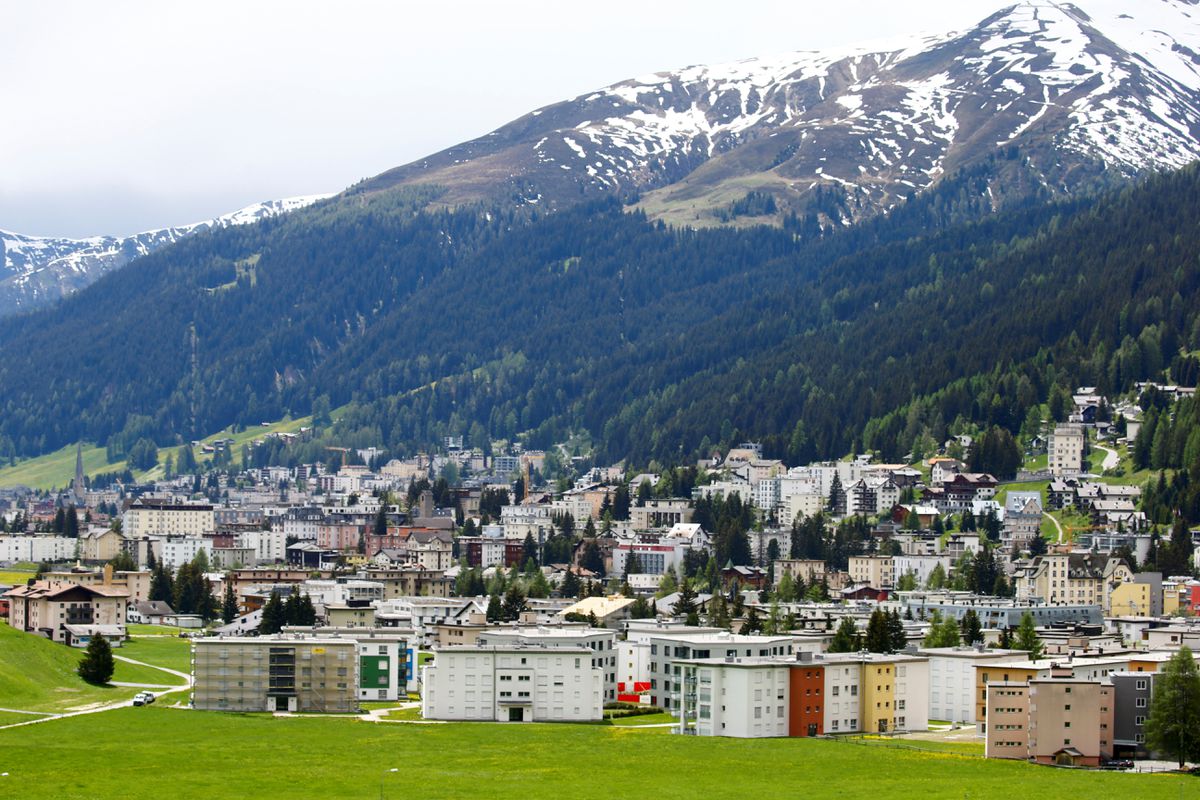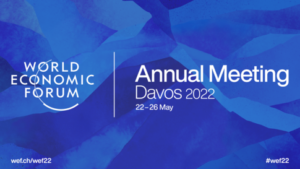Davos is back in business - but it’s not quite business as usual

The World Economic Forum Annual Meeting 2022
May 22-26, Davos-Klosters
Albeit sans snow boots, and after a two-and-half year break, the World Economic Forum’s Annual Meeting is about to return in all its physical glory. The last few days have seen shops and rooftops on the Davos Promenade being re-fitted for networking over cocktails with the hope to rekindle the face-to-face buzz of previous years. Yes, Davos is back in business this month but it’s not business as usual – and for good reason.
Agenda focuses on a new era of global responsibility
The war in Ukraine and a global pandemic have induced a marked shift in mindsets and, arguably, expectations of Davos. This year there is even more emphasis on ESG-related topics such as climate change, nature and circular innovation, but how to deal with a global food crisis now eclipses in panel sessions traditional fare such as responsible AI and ponderances about the global economic outlook. Business attendees participating this year will need – now more than ever – to show not tell – and be able to prove genuine commitment to tackling some of society’s biggest challenges. At Davos, failure to embrace this philosophy and not living up to it brings reputational risk.
What to look out for
So who will be in town? Word on the street is that while delegates from China will be depleted and there won’t be any from Russia, this Annual Meeting will be almost as busy as it is in the depths of winter. It’s true that some firms have scaled back but close to 2,300 delegates are confirmed to descend from CEOs to climate campaigners – to Prime Ministers and Presidents. The stage is set for the opening Special Address on Monday at 11am by Volodymyr Zelensky. Joining virtually, the President of Ukraine effectively opening the week is perhaps one of the starkest reminders of how much the world has changed since the last physical Annual Meeting. Like so many organisations, Davos has been forced to adapt – and the new agenda (history at a turning point) reflects that.
The meeting is organised around six key themes: restoring global order and regional cooperation; securing the economic recovery and shaping a new era of growth; building healthy and equitable societies; safeguarding climate, food and nature; driving industry transformation and harnessing the power of the Fourth Industrial Revolution. Delivering a sustainable future for all is still very much the overall thematic in a world with new frictions, fractures and divides.
Maximising the Davos opportunity
Beyond business and political attendees, expect Davos to be used once again as an opportunity for climate campaigners and media to make splashes of their own. Journalists will be itching for off-the-cuff remarks from CEOs that will convince editors back home that sending correspondents to the Alps isn’t just another jolly. It pays in Davos to be well prepared for conversations with any stakeholder – media or otherwise – align messaging closely with the issues the event seeks to address, but also offer a personal point of view,
Despite the Davos critics, the meeting always provides an environment like no other to reconnect, learn and ‘speed date’ other movers and shakers who can help create alliances to advance a cause or case. Few events bring together such a powerful selection of Chief Executives and Chairs, political leaders, civil society representatives, youth leaders and key figures from the worlds of art, culture, science and technology. And this year, the topics being addressed somehow feel more important than ever. Here we go again.
Written by Aleksandra Barnes and Richard Griffiths, Corporate Reputation

